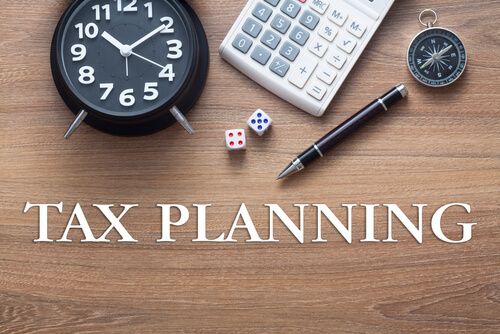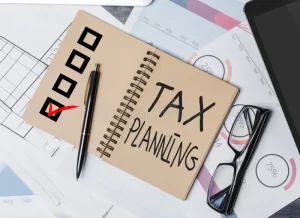![]()
Tax Planning Cost
Tax planning cost encompasses the utilization of strategies and the execution of financial choices aimed at reducing your tax obligations and minimizing your overall tax liability.
Here are some steps to consider when doing tax planning, tax planning cost:
1. Understand the tax laws:
Familiarize yourself with the tax laws and regulations applicable in your country or region. This includes knowing the various tax brackets, deductions, exemptions, and credits available to you.
Determine your tax goals: Identify your tax goals, such as reducing your overall tax liability, maximizing deductions, or taking advantage of tax credits. Having clear goals will help you focus your tax planning efforts.
2. Assess your income and expenses:
Review your income sources, including salary, investments, rental income, or business income. Also, evaluate your expenses and identify potential deductions or exemptions that may apply to you.
Maximize deductions and exemptions: Take advantage of deductions and exemptions available to you. This may include deductions for expenses like home mortgage interest, medical expenses, education expenses, charitable contributions, and retirement contributions.Tax planning cost
3. Explore tax-efficient investment options:
Consider investing in tax-advantaged accounts or instruments such as retirement accounts (e.g., 401(k), IRA), Health Savings Accounts (HSAs), or tax-free municipal bonds. These investments can provide tax benefits such as tax-deferred growth or tax-free withdrawals.
4. Timing of income and expenses:
Evaluate the timing of your income and expenses to optimize your tax situation. For example, consider deferring income to a lower tax year or accelerating deductible expenses into the current tax year.
Review your business structure: If you have a business, assess whether your current business structure (e.g., sole proprietorship, LLC, S-corporation) is tax-efficient. Depending on your circumstances, restructuring your business may help you reduce your tax liability.
5. Seek professional advice:
Consult with a qualified tax professional or financial advisor who can provide personalized guidance based on your specific financial situation and goals.
They can help you navigate complex tax laws, identify tax-saving opportunities, and ensure compliance with relevant regulations.
6. Stay informed and plan ahead:
Keep yourself updated on changes to tax laws and regulations that may impact your tax planning strategy. Plan ahead and make adjustments as needed to adapt to any new provisions or changes in tax regulations.
Remember, tax planning should always be done within the legal framework and should focus on optimizing your tax situation while complying with the applicable tax laws.
The cost of tax planning services can vary depending on several factors, including the complexity of your tax situation, the expertise of the tax professional or advisor, and the specific services you require.
Here are some common ways tax planning services are priced
Tax planning encompasses the utilization of strategies and the execution of financial choices aimed at reducing your tax obligations and minimizing your overall tax liability. The rate can vary based on the experience and qualifications of the professional. Hourly rates can range from $100 to $500 or more per hour, depending on the complexity and scope of the tax planning work.
Fixed fees:
In some cases, tax professionals may offer fixed fees for specific tax planning services. For example, they may charge a flat fee for preparing and filing your tax return, providing tax planning advice for a specific situation, or conducting a comprehensive review of your financial and tax situation.
Percentage of tax savings:
In certain situations, tax professionals may charge a percentage of the tax savings achieved through their tax planning strategies. This fee structure is often used for more complex and high-value tax planning engagements.
Retainer or ongoing se Tax planning cost services:
If you require ongoing tax planning and advisory services, some tax professionals may offer retainer-based arrangements. You pay a fixed monthly or annual fee to retain their services, and they provide ongoing tax planning advice, review of financial transactions, and assistance with compliance. Tax planning cost
It’s important to discuss fees and pricing with the tax professional or advisor upfront before engaging their services. The cost of tax planning should be weighed against the potential tax savings and benefits you may achieve. Consider seeking multiple quotes or proposals from different professionals to compare costs and services offered.
Visit for more information: https://www.incometax.gov.in
FAQs
1. How much does tax planning typically cost?
Answer: Costs can vary widely, ranging from a few hundred to several thousand dollars, depending on complexity and the advisor’s fees.
2. What factors influence the cost of tax planning?
Answer: Factors include the individual’s financial situation, the complexity of the tax strategy, and the advisor’s experience.
3. Do I need a professional for tax planning?
Answer: While it’s possible to do it yourself, many people hire tax professionals for their expertise, which can increase costs.
4. What types of professionals offer tax planning services?
Answer: Tax planners, accountants, and financial advisors commonly provide tax planning services.
5. Are there ongoing costs for tax planning?
Answer: Yes, ongoing costs may include annual consultations, tax preparation fees, or subscription fees for financial planning services.
6. Can tax planning save me money in the long run?
Answer: Yes, effective tax planning can lead to significant savings, often offsetting the initial costs of hiring a professional.
7. Are there free resources for tax planning?
Answer: Yes, there are free online resources, workshops, and government websites that offer tax planning information.
8. How can I find a tax planner within my budget?
Answer: Research different professionals, compare fees, and ask for recommendations. Many offer initial consultations for free.
9. What should I expect in terms of value from tax planning?
Answer: You should expect personalized strategies to minimize taxes, increase savings, and improve financial efficiency based on your unique situation.

For further details access our website https://vibrantfinserv.com